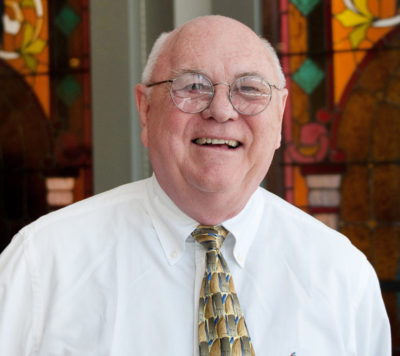
Readings:
Reading I: Ezekiel 33:7-9
Psalm: 95:1-2, 6-7, 8-9
Reading II: Romans 13:8-10
Gospel: Matthew 18:15-20
LOVE IN THE CENTER
In our Sunday Lectionary, the second reading usually does not claim our full attention. Since the “theme” of the readings is expressed in the first reading and the gospel, the second reading is often skipped in reflections on the Sunday readings, or perhaps is given a mention in an auxiliary way, reinforcing the message of the main theme.
In the context of today’s readings, I think the second reading from Romans has pride of place and offers the context in which the other two scripture readings might be best understood.
The second reading is about love which, despite its often-hackneyed use in Christian literature and frequent inane homilies, is nevertheless the central message of Christianity. Paul’s language in this passage from Romans is rhapsodic. It rivals the key passages on love in the first letter of John, or in Jesus’ farewell discourse in John’s gospel. The reading consists of only three verses, but they are bursting with power and meaning — and challenge.
The one thing necessary in Christian life, Paul exclaims, is for Christians to love one another: “owe nothing to anyone, except to love one another.” Love is the fulfillment of the law, as Jesus taught when confronted by a legal scholar in Matt 22:34-40. The commandments, Paul implies, are not so much defined by “thou shalt not,” as by sisterly and brotherly love: Respect each other’s bodies, reverence each other’s lives, recognize each other’s property. Everything is summed up, as Jesus said, in the phrase “you shall love your neighbor as yourself.” Loving each other is what keeps one faithful to our covenant relationship with God. The path to God is through others; loving others is the path to God.
It is in this context, as I say, that we need to understand both the first reading and the gospel.
We warn the “wicked,” in Ezekiel’s words, out of love for them. This warning might, of course, be in a personal confrontation. But since wickedness today often takes the form of cultural and institutional evil, our task may be more along the lines of signing petitions, boycotting certain products, limiting our investments—as much as we can—to companies that respect human rights and the rights of creation, voting responsibly, participating in protests and campaigns for human and ecological values, speaking out as anti-racists. Yes, we may be angered by the world’s wickedness, but we warn the wicked not out of arrogance but out of deep concern — for the issues, but also for the ones who commit wickedness. Martin Luther King’s conviction was that in working for civil rights for African Americans he was also restoring the dignity and true freedom of those who denied dignity and freedom to his people. One of his books was entitled Strength to Love. John Woolman, the eighteenth-century Quaker and abolitionist, wrote that, before preaching against slavery, he would “tender his heart” toward those he was trying to convict of sin. Our second reading calls us to do the same.
We express our hurts when others offend us, as Jesus says in the gospel, out of love for them. We do it with “tendered hearts.” Jesus may have had in mind personal hurts, and we certainly have to let people know when we have been wounded by their words, attitudes, or actions in regard to our own person. Keeping this in and nursing a grudge only continues to hurt us — and them.
But we might think as well about ourselves as the offenders — not always consciously, but part of systems and institutions that have sidelined or marginalized or have not taken seriously many groups of women and men and young people. We might think of victims of sexual abuse expressing their hurt to the church, or women whose rights and dignity have been ignored by both church and civil society when speaking out for themselves, or our sisters and brothers who are disabled sharing with us their pain at being ignored or degraded, our LGBTQI+ sisters, brothers, or those struggling with their gender identity, sharing their pain as well. Let them tell of their woundedness to their friends. Let them tell of their woundedness to the church. And let them tell it in love and let us hear it in love. Let the church — gathered together to find Christ in its midst — acknowledge the pain of these men, women, and young people. Let us in the church bind them to ourselves. Let us in the church set them loose — set them free.
Let us, indeed, owe nothing to anyone — except to love one another. Love is in the Center.
Steve Bevans, SVD
Louis J. Luzbetak, SVD Professor of Mission and Culture, Emeritus